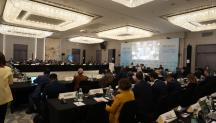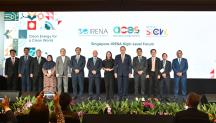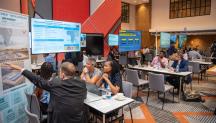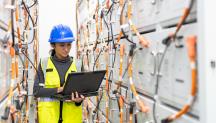
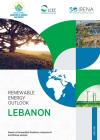
-
-
IRENA (2020), Renewable Energy Outlook: Lebanon International Renewable Energy Agency, Abu Dhabi.
Copied
/-/media/Files/IRENA/Agency/Publication/2020/Jun/IRENA_Outlook_Lebanon_2020.pdf
Copied
Renewable Energy Outlook: Lebanon
Newsletter
Energy and electricity demand have weighed heavily on Lebanon’s economy. Imported fuel oil accounts for nearly a quarter of the national budget deficit, while electricity demand outpaces power generation capacity. Renewable energy technologies, in contrast, offer the prospect of clean, fully domestically sourced power and heat systems. Renewables and energy efficiency have also strengthened recovery plans in the wake of COVID-19.
Lebanon has adopted an ambitious target to cover 30% of its energy consumption from renewables by 2030. This study, carried out by the International Renewable Energy Agency (IRENA) in collaboration with Lebanon’s Ministry of Energy and Water (MEW) and the Lebanese Centre for Energy Conservation (LCEC), examines the policy, regulatory, financial and capacity-related challenges to overcome in pursuing such plans.
The report combines IRENA’s Renewables Readiness Assessment (RRA) methodology, based on country-led consultations with stakeholders, with an in-depth country-level REmap analysis. REmap – IRENA’s global roadmap to scale up renewables – identifies untapped potential and quantifies other factors, such as costs, investment needs and the effect on externalities related to air pollution and the environment.
Lebanon could realistically and cost-effectively obtain 30% of its electricity supply from renewables by 2030, the study finds. But doing so requires considerable acceleration, effectively doubling the share expected from existing plans and policies. The LCEC action plan for solar and wind development represents a notable step in this direction.
The report recommends seven key actions to accelerate the country’s uptake of renewables:
- Implement more stable and integrated regulations for renewable energy deployment;
- Adopt new measures for small-scale applications;
- Complement national targets with technology-specific renewable energy targets;
- Set enabling tools for the installation of heating and cooling;
- Reform the current market framework to increase investments and ensure project bankability;
- Reinforce the grid and conduct grid impact assessments;
- Ensure the availability of financing and strengthen the role of the private sector.
In addition, the study notes, renewable energy investments can strengthen Lebanon’s response to the COVID-19 pandemic.
